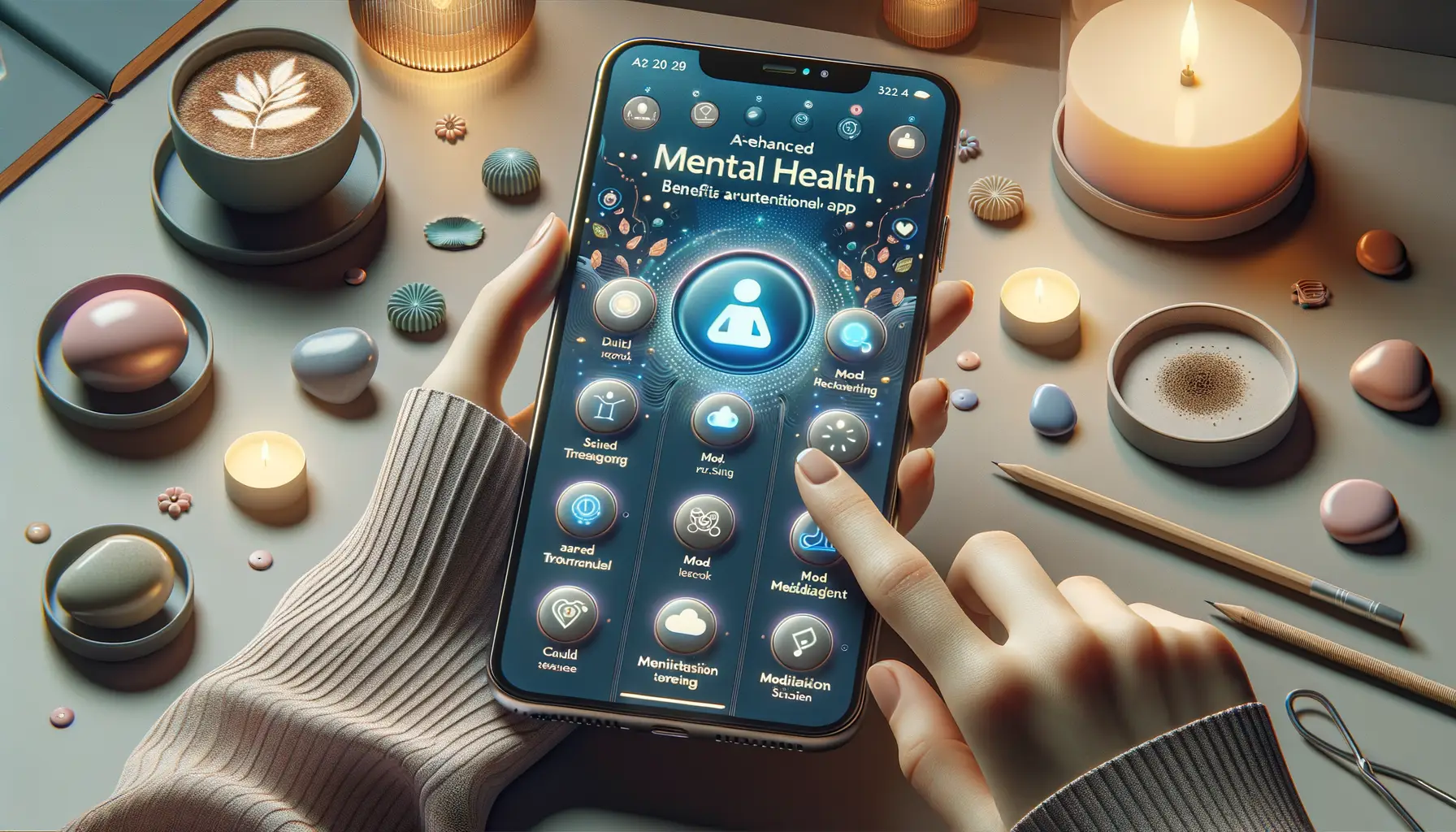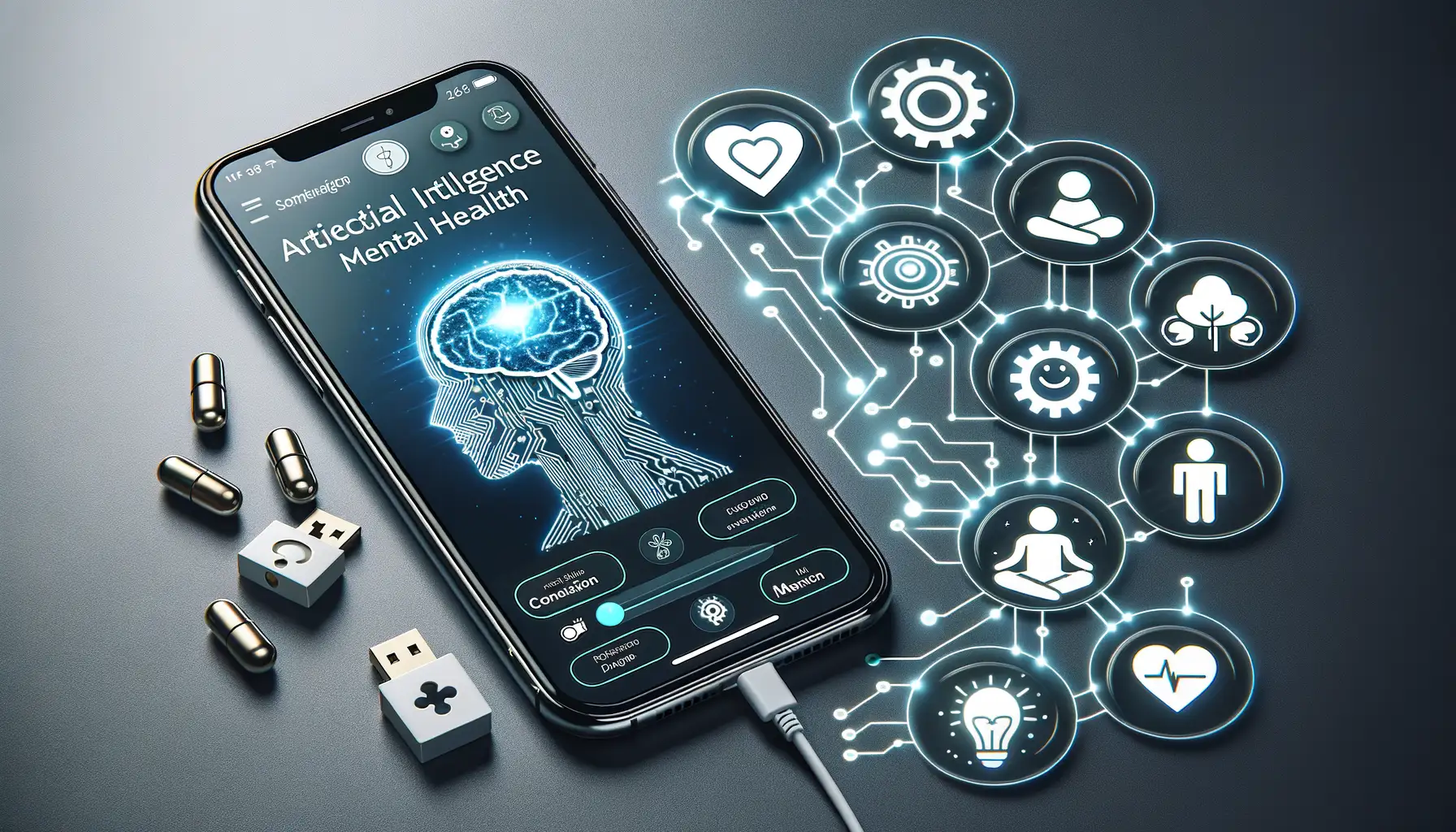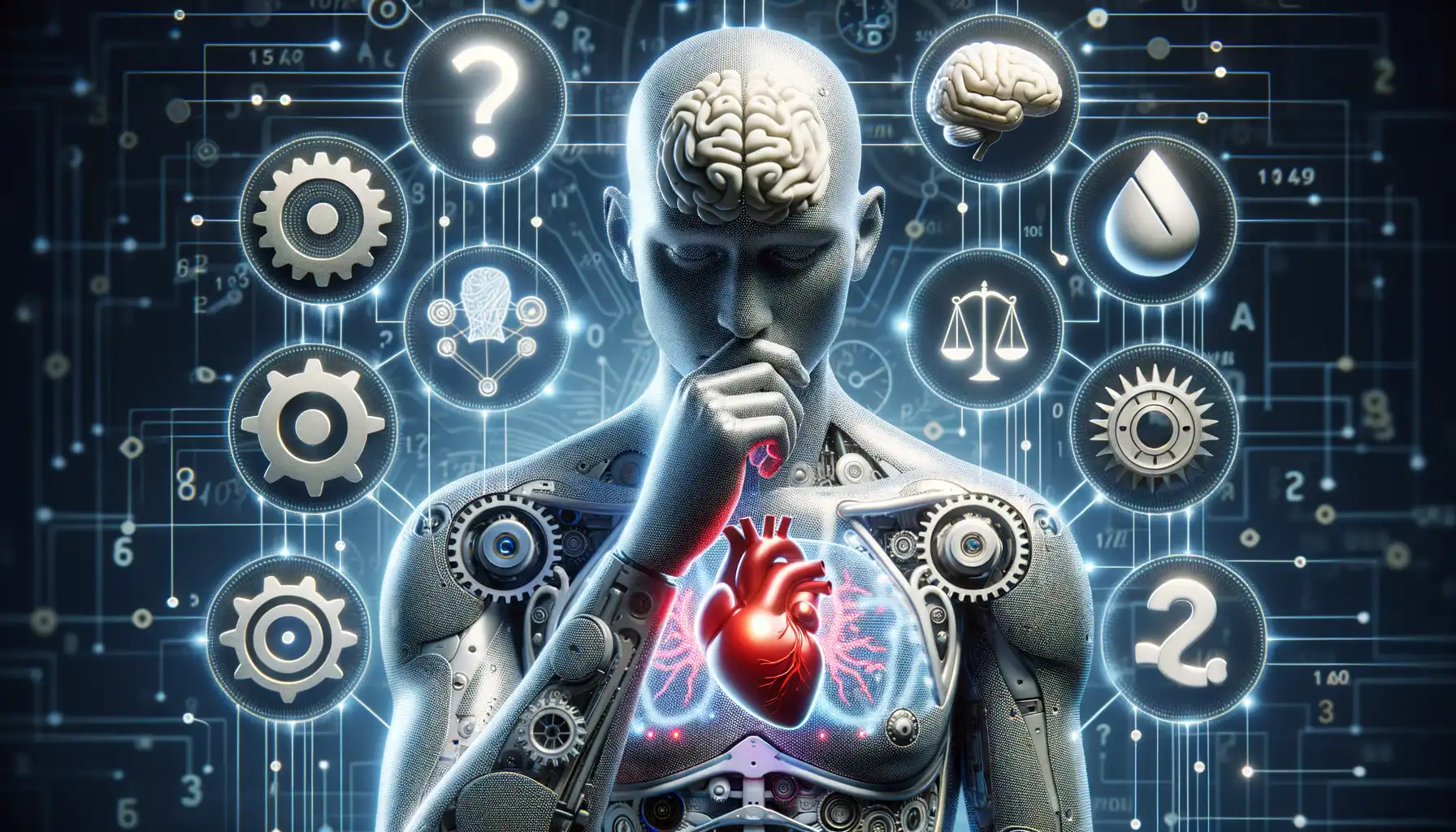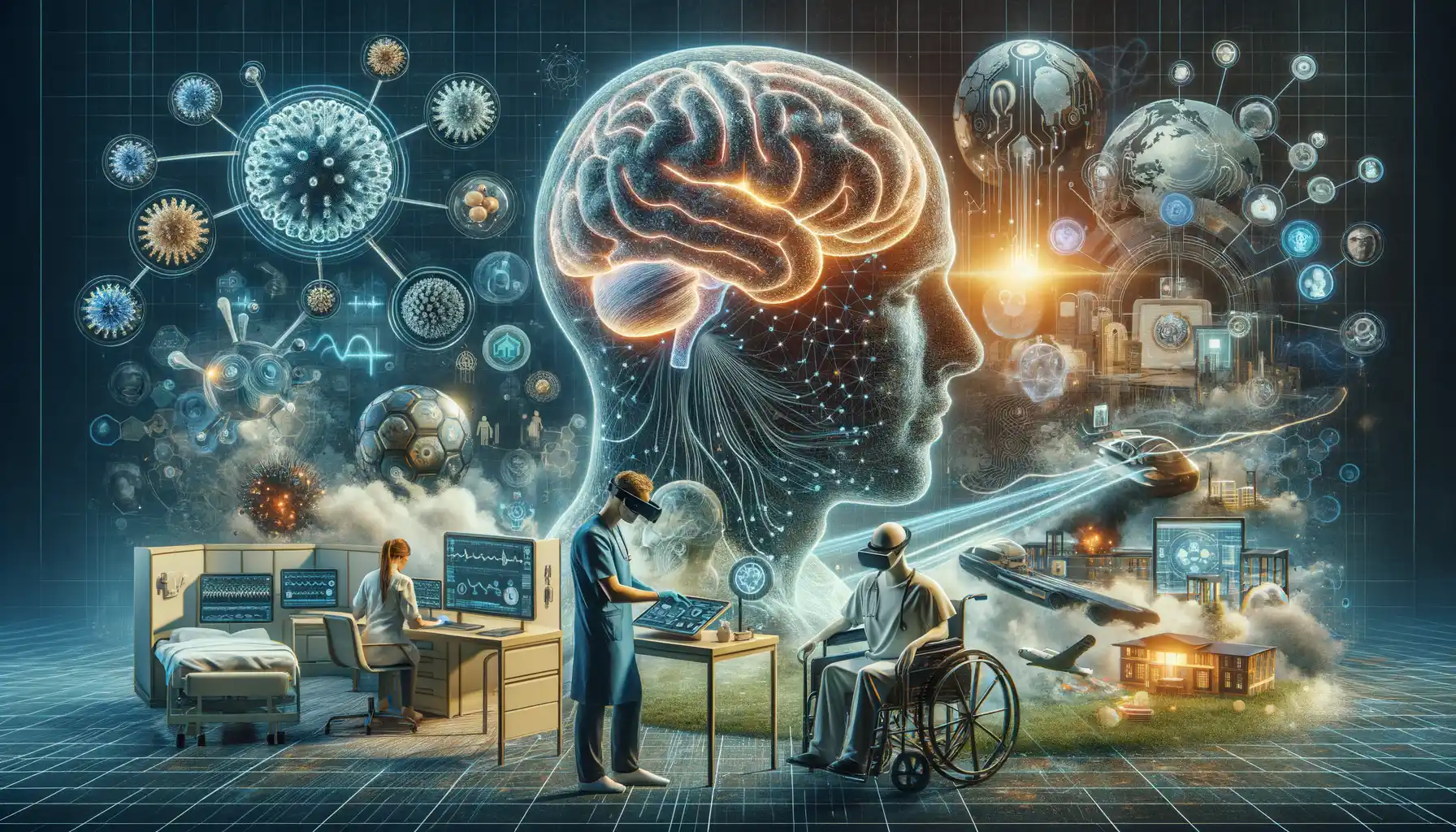Introduction to AI in Mental Health Support
Why AI Could Be Your Mental Health Wingman
Let’s face it—mental health struggles can feel like untangling a hundred invisible knots. This is where AI-powered tools swoop in, like a trusty sidekick, to help navigate the overwhelming maze of thoughts and emotions. Imagine having a judgment-free, 24/7 companion that listens, analyzes, and offers actionable advice. Sounds futuristic, right? Well, the future is already here.
AI works behind the scenes like a digital detective, recognizing not just what you say but how you feel. For example, if you use a therapy app, AI might detect subtle shifts in your mood based on the words you type or the tone of your voice. It’s eerily intuitive—but in the best way.
- A chatbot might guide you through a mindfulness exercise when stress peaks.
- Or, an AI-driven journal could suggest cognitive reframing techniques to challenge negative thoughts.
The Human Touch, Amplified by Algorithms
Of course, no robot—or algorithm—can replace human therapists. But here’s the beauty: AI makes support more accessible. For those moments when picking up the phone feels impossible, apps like Woebot or Replika step in with data-driven wisdom, tailored just for you. Think of them as your emotional pit crew, always ready to recalibrate your mental engine whenever you hit a rough patch.
Benefits of Mental Health Apps Enhanced by AI

Revolutionizing How You Access Mental Health Support
Imagine having a compassionate listener in your pocket 24/7—no appointments, no waiting rooms, just immediate support whenever you need it. That’s the magic of mental health apps powered by AI. These aren’t just digital tools; they’re like your emotionally intelligent sidekick, always ready to step in.
With AI-enhanced mental health apps, you’re no longer limited to traditional therapy models. They adapt to *you*. Stressed one day but calm the next? The app notices. Feeling isolated but unsure who to talk to? It connects you to resources or guided exercises designed to meet you exactly where you are. It’s personalization on a whole new level.
- Instant Feedback: Chatbots trained in natural language processing provide real-time advice, making you feel heard.
- 24/7 Availability: Because emotions don’t check the clock, AI mental health apps are always on call.
- Data-Driven Insights: Regular interactions help these apps identify patterns in your mood, pinpoint triggers, and suggest actionable strategies.
You’re not just another user; you’re the star, with an app that tailors its approach around your unique needs. It’s like having a therapist who knows when to sit quietly or offer the perfect piece of advice—except all at your fingertips. Convenient? Yes. Groundbreaking? Absolutely.
Key Features of AI-Powered Mental Health Apps

Personalized Support Tailored Just for You
Imagine having a pocket-sized mental health coach that knows your unique needs and adjusts its approach just for you. That’s the magic of AI-driven apps! These tools use cutting-edge algorithms to analyze patterns in your emotions, habits, and behavior. Over time, they become your personal guide, offering advice as if they’ve known you for years. Feeling anxious at night? The app might suggest a calming meditation based on your routine. Struggling with overwhelming thoughts? A chatbot could guide you through reframing exercises in real-time.
Here’s the kicker: it doesn’t feel generic. With features like mood tracking and tailored feedback, every interaction feels meaningful. It’s like having a supportive friend who actually “gets” you—without judgment or hesitation.
Game-Changing Tools You’ll Love
What truly sets these apps apart are the practical features designed to empower you, including:
- AI chatbots: Available 24/7 for when you need to vent or seek advice instantly.
- Interactive CBT exercises: Tackle negative thoughts with scientifically-backed techniques made bite-sized and accessible.
- Voice and text analysis: Subtly monitors your tone or word choice to detect shifts in mood that even you might miss.
These don’t just feel like tools; they feel like lifelines—designed to bring relief when you need it most.
Challenges and Ethical Considerations of AI in Mental Health

Walking the Fine Line: Ethical Dilemmas in AI Mental Health
Imagine opening up to a mental health app about your deepest fears, only to wonder later—who’s listening? One of the biggest challenges facing AI in mental health is confidentiality. While AI strives to mimic a supportive ear, it’s still collecting data—and that can feel like spilling your secrets to someone who might accidentally leave their diary open.
Data privacy raises serious concerns. For instance, how do we protect sensitive mental health records from hackers or misuse? And there’s transparency—or lack of it. Does the app clearly tell users how their information will be stored or shared? The line between helpful and harmful can blur quickly.
- Bias baked in algorithms: Some AI systems fail to consider cultural nuances and diverse experiences, leading to advice that feels out of touch or even harmful.
- The illusion of empathy: Can a machine, no matter how well-designed, truly “understand” human emotions?
When AI Hits the Limits of Humanity
Then, there’s the tricky territory of autonomy. Apps may oversimplify complex mental health struggles with one-size-fits-all solutions. Imagine someone experiencing trauma getting generic, robotic advice—it might lead to alienation rather than healing. AI tools must know when to step back and signal for human intervention. After all, sometimes a chatbot is no replacement for a warm voice saying, “I’m here for you.”
Future Trends in AI-Driven Mental Health Solutions

The Rise of Hyper-Personalized AI Therapy
Imagine this: a mental health app that doesn’t just track your mood but actually seems to know you—your quirks, struggles, and even the way you process tough days. That’s where we’re headed with future AI-driven mental health solutions. Today, apps are already using algorithms to analyze patterns, but what’s on the horizon feels almost like magic.
AI is evolving to create hyper-personalized support plans, adapting in real time as your emotional state shifts. For example, if you’re prone to feeling anxious before work presentations, your app might suggest a tailored breathing exercise or even recommend adjusting your sleep schedule two nights beforehand. It’s not just advice—it’s precision care for your unique mental health blueprint.
From Reactive to Proactive Care
Here’s an exciting shift: future AI won’t just respond to struggles; it’ll help you avoid them altogether. Think predictive mental health—apps that flag potential burnout before it hits or gently nudge you toward healthy habits after sensing changes in your voice or activity patterns.
Take the example of wearable tech syncing with mental health apps. An elevated heart rate during sleep? Your AI might detect stress-related insomnia and suggest soothing audio tracks to calm your nervous system. Suddenly, it feels less like you’re managing mental health and more like you have a proactive team backing you up 24/7.
The combination of advancing AI and our growing understanding of mental health opens a door to something profound: a future where support feels seamless, intuitive, and surprisingly human.
